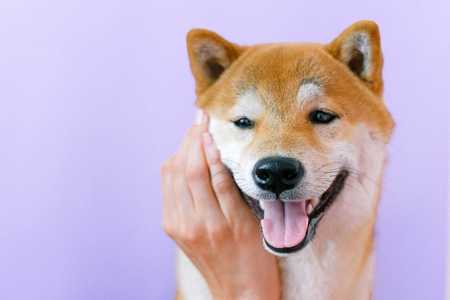Is the Shiba Inu a Hypoallergenic Dog?
Household pets are more popular than ever in the United States, with 62% of households owning at least one (source). That's the highest percentage of any country in the world, and the trend shows no signs of slowing down. So if you're thinking of getting a furry friend, you're certainly not alone.
But what kind of pet is right for you and your family? If you're allergic to dogs but still want to experience the joys of pet ownership, you might be wondering if a hypoallergenic dog is the right choice for you.
One dog breed that has gained popularity in recent years is the Shiba Inu. These dogs are often said to be a hypoallergenic breed, but is that really the case? Let's take a closer look.
Are Shiba Inu a Hypoallergenic breed?
You might be disappointed if you are allergic to dogs and want to get a cute Shiba Inu Puppy.
The Shiba Inu is not a hypoallergenic breed, so if you're allergic to dogs, you're likely to be allergic to them as well.
However, some people with allergies to dogs find that they can tolerate Shiba Inu better than other breeds, so it's worth considering if you're set on getting a Shiba Inu. There is not much scientific research on this breed regarding allergies, so there is not enough data. Nevertheless, some people that suffer from dog allergies can still have a dog, even a Shiba Inu. Because no dog is the same, you can get an allergic reaction to a dog but not others.
The best way to know if a Shiba Inu will make your allergies go haywire is to spend some quality time with one. If you sneeze and wheeze after a few minutes, it might be best to steer clear of these pups. If you have allergies and want to get a Shiba Inu, your best bet is to find a breeder who is willing to do an allergy test with the dog’s dander and saliva and see if you have a reaction.

If you want to go down this road, first remember I’m not a medical professional, and you should always consult with your doctor.
So, if the Shiba Inu is not a hypoallergenic breed, what breeds are? And what is the best choice for an allergic person?
What is a Hypoallergenic Dog?
As we all know, humans can develop different allergies. The prevalence of human allergy to pets has increased over the half-century, with the most frequently reported animal sensitivity to cats and dogs. But what does it mean when a dog is called “hypoallergenic”?
A hypoallergenic dog breed is a dog breed that is less likely to trigger an allergic reaction in people with allergies to dogs. However, there is no such thing as a completely hypoallergenic dog breed because all dogs produce some level of pet dander, which is the main cause of pet allergies in humans.
Many people in the community claim that some breeds are hypoallergenic breeds, such as the Poodle, Bichon Frise, Yorkshire Terrier, and others.
However, scientists experimented to see if there were any differences in dog allergens between houses with the so-called hypoallergenic dogs and other houses with other dogs. The researchers couldn't find any significant difference (source).
So what does that mean? Are hypoallergenic dogs a myth?
Most likely, yes. There's no such thing as a hypoallergenic dog breed. Or at least, the concept of a "hypoallergenic" animal is not supported by scientific evidence, so people allergic to dogs may still be allergic to hypoallergenic dog breeds. That said, everyone’s different and may suffer more or less with a specific dog breed or even with every dog.
So hypoallergenic dog breeds do not exist, can an allergic person still live with a dog?
Live With a Dog If You are Allergic to Them
If you are allergic to dogs but still would love to own one, you may have asked yourself if it is possible to live with a dog. Well, I did some research, and it turns out that a lot of people that are allergic to dogs can still live with them.
First, let’s start with some basics. If you are allergic to dogs, it means that you are allergic to a protein that dogs produce, called "Can f 1". This protein can be found in high concentrations in the dander they produce. Dander is made up of dead skin cells, and as mentioned above, it contains a protein that causes people to have an allergic reaction. Dander is tiny, so it's easy to float in the air. Also, if you have carpet, it can get stuck in the fibers and your furniture. When you breathe in these tiny particles, your body might think it's a threat and have an immune response.
A way to reduce the amount of dander in your home is to bathe your dog regularly. This will help to remove any loose dander that is on their skin. Research shows that washing your dog regularly, at least twice a week, can drastically reduce the amount of dander, thus reducing the allergic reaction in people suffering from it (source). You should also brush your dog regularly to remove any loose hair. Just remember to do it outside if possible.
In addition to these measures, there are also a few things that you can do to make your home more allergy-friendly. One of the best things you can do is invest in an air purifier. This will help remove any dander floating around in the air. You should also vacuum regularly, using a vacuum that has a HEPA filter. This will help to remove any dander that has settled on your floors or furniture. Finally, many people suggest making a room pet free and try not to sleep with your dog.
If you follow these tips, you should be able to live comfortably with a dog, even if you are allergic to them. Many people are allergic to dogs and live happily with their pets. However, it is important to remember that allergies are not the same for everyone, so much so that there is a whole spectrum of allergies to pets, from lightly allergic to highly allergic. Plus, every dog breed can trigger a different reaction in an allergic person.
So, if you are allergic and want to get a dog, try to expose yourself to different dogs, possibly in different situations, before getting one. Try also a closed space for a sustained period. Then decide the best dog breed for you, based on which dog triggered the least reaction or possibly no reaction.
Hopefully, if you follow these suggestions, you will still be able to get the Shiba Inu puppy you have been dreaming of.
Disclosure: Please note that some of the links below may be affiliate links, from which I'll earn a commission at no additional cost to you. When you use one of my affiliate links, the company will compensates me, which helps me run this blog and keep all of my in-depth content free of charge for readers like you.

